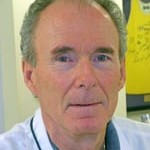In This Episode
For many sports enthusiasts, being able to work for a major NBA, NFL or NHL team would be an absolute dream. Our guest on this week’s podcast is Dr. Jeffrey Hoy, who served as the team dentist for the Lakers and Kings, as well as other large Los Angeles sports teams, for 30 years. In addition to his collection of championship rings, he has countless memories to commemorate this epic time in his dentistry career.
Listen to this episode of The Art of Dental Finance and Management podcast to learn more about how Dr. Hoy became the team dentist for some of the most renowned athletes of all time, including the late Kobe Bryant. He provides excellent, practical advice for aspiring sports dentists at any stage of their career, as well how supporting high school and college athletic teams can enhance your existing dental practice. Dr. Hoy discusses what steps dentists need to take and training necessary to become a competitive, highly sought-after sports dentist.
Show Notes & Resources
- Eide Bailly’s Dental Practice
- Academy for Sports Dentistry
- What Business Areas to Focus on in Your Dental Practice
About the Host

Art Wiederman, CPA, Director of Dental Practices | Eide Bailly
Art specializes in serving dental practices. He oversees a variety of services including accounting, tax compliance and planning, financial planning, retirement planning, and financial practice management consulting. Art’s expertise is not only in taxation issues for dentists, but also in his knowledge of dental practice metrics and benchmarks. Art has the ability to look at a dentist’s statements and identify profit holes in their practice.
About the Guest


